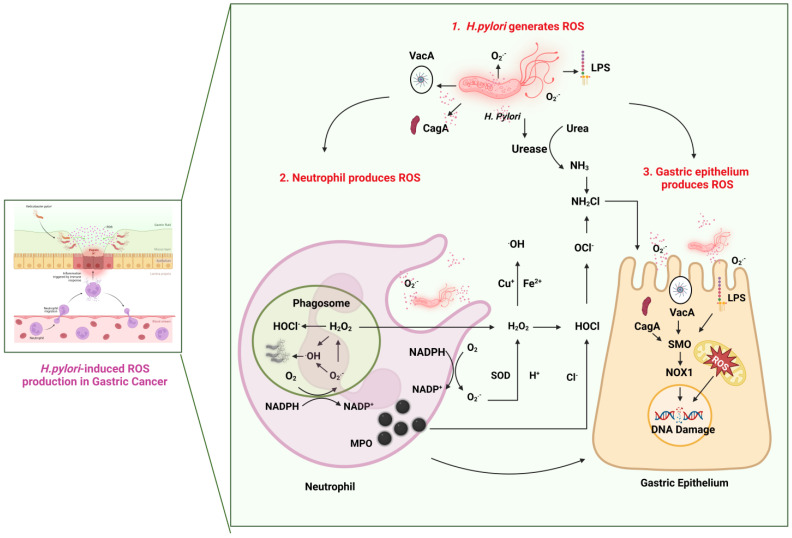Figure 1.
The role of ROS generation in gastric carcinogenesis. The prolonged presence of H. pylori in gastric mucosal cells leads to oxidative stress, chronic inflammation, and DNA damage. In addition, H. pylori facilitates the production of ROS and RNS using the host inflammation cells in the gastric mucosa. This results in mucosal damage via the activation of neutrophils, which releases the oxidative stressors that facilitate the exposure of gastric epithelium to reactive oxygen species. Even though ROS can be generated by various cells, including macrophages and epithelial cells, neutrophils generate the bulk of ROS. Recent research has indicated that H. pylori-induced ROS production may influence gastric epithelial cell signal transduction, which contributes to GC [23]. (O2•−: superoxide anion, •OH: hydroxyl radicals, H2O2: hydrogen peroxide, NH3: ammonia, NH2Cl: monochloramine, OCl−: hypochlorite ion, HOCl: hypochlorous acid, Cl−: chloride, H+: hydrogen ion, SOD: superoxide dismutase, Cu+: cuprous ion, and Fe2+: ferrous ion).

